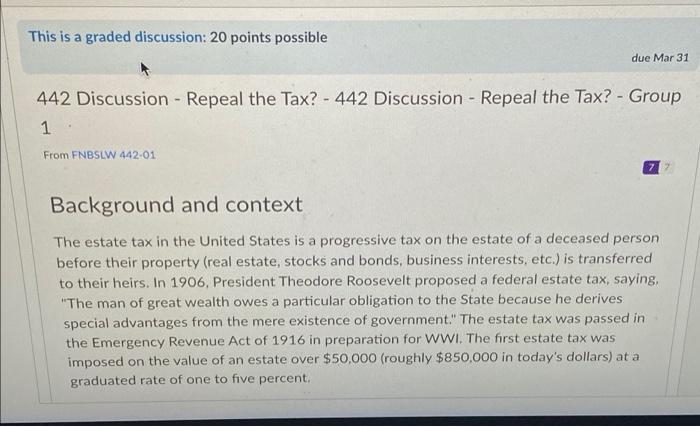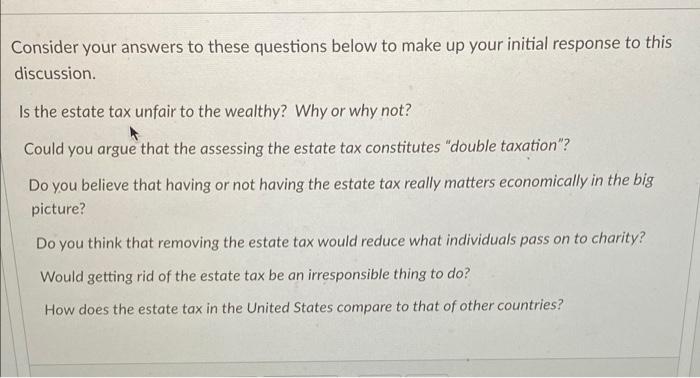Answered step by step
Verified Expert Solution
Question
1 Approved Answer
Estate and trusts 442 This is a graded discussion: 20 points possible due Mar 31 442 Discussion - Repeal the Tax? - 442 Discussion -
Estate and trusts 442 

This is a graded discussion: 20 points possible due Mar 31 442 Discussion - Repeal the Tax? - 442 Discussion - Repeal the Tax? - Group 1 From FNBSLW 442-01 7 Background and context The estate tax in the United States is a progressive tax on the estate of a deceased person before their property (real estate, stocks and bonds, business interests, etc.) is transferred to their heirs. In 1906, President Theodore Roosevelt proposed a federal estate tax, saying, "The man of great wealth owes a particular obligation to the State because he derives special advantages from the mere existence of government." The estate tax was passed in the Emergency Revenue Act of 1916 in preparation for WWI. The first estate tax was imposed on the value of an estate over $50,000 (roughly $850,000 in today's dollars) at a graduated rate of one to five percent. Consider your answers to these questions below to make up your initial response to this discussion. Is the estate tax unfair to the wealthy? Why or why not? Could you argue that the assessing the estate tax constitutes "double taxation"? Do you believe that having or not having the estate tax really matters economically in the big picture? Do you think that removing the estate tax would reduce what individuals pass on to charity? Would getting rid of the estate tax be an irresponsible thing to do? How does the estate tax in the United States compare to that of other countries 

Step by Step Solution
There are 3 Steps involved in it
Step: 1

Get Instant Access to Expert-Tailored Solutions
See step-by-step solutions with expert insights and AI powered tools for academic success
Step: 2

Step: 3

Ace Your Homework with AI
Get the answers you need in no time with our AI-driven, step-by-step assistance
Get Started


